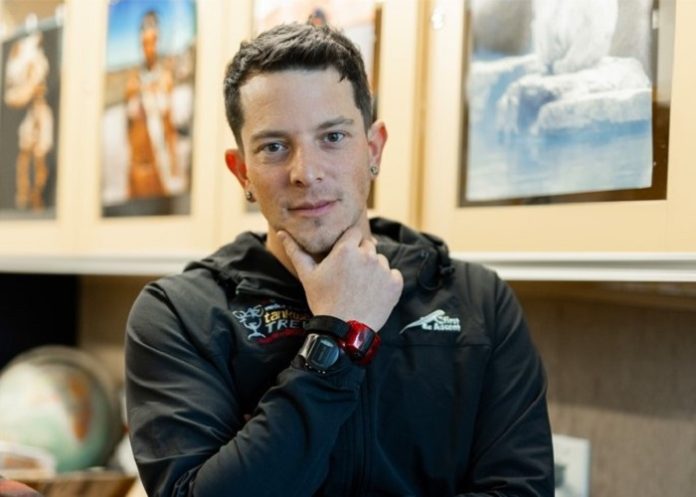A senior lecturer at the Wits School of Biomedical Sciences had made it his mission to understand sleep, sleep deprivation and its impact on frontline emergency workers in Africa’s extreme conditions – to improve the sleep cycles of these imperative professionals and to help society understand the importance of this lifesaving necessity.
At 4am somewhere in Gauteng, Dr Joshua Davimes is at a garage forecourt, waiting for an end-of-shift paramedic to hand over an actigraphy device. Worn on the wrist, it tracks sleep and activity over time. This is fieldwork: the ambulance bases, ER corridors, petrol stations, liminal spaces that South Africa’s emergency responders pass through, exhausted and unseen.
“It’s bizarre work,” said Davimes. “It doesn’t bother me. It doesn't scare me. It excites me.”
Counting sheep
Davimes is disrupting the traditional lab-bound model of sleep science – he’s out there gathering data on the sleep health of those who hold the frontline during trauma: paramedics, ER doctors, emergency physicians and security personnel.
His research group, Sleep Health Exploration in Extreme Populations, focuses on shift workers in high-stake, low-resource environments.
The group’s findings have shed light on what Davimes calls the “backstage” reality of emergency work: poor sleep, untreated trauma, burnout masked by stoic professionalism and African-specific taboos around sleep.
These are the people who, as he puts it, “sacrifice five to 10 years of their lifespan” to care for others while operating under intense stress and irregular hours, often with minimal support.
Neuroscientific dreams
Davimes didn’t plan on this career path. He considered engineering, architecture and even film school. However, a lifelong fascination with the brain, shaped through deep conversations with his father who had multiple sclerosis and his mother who used dream therapy in her social work, eventually led him to neuroscience.
As a curious child, he was drawn to big questions and he’s still looking for answers: “Sleep is an emergent property of consciousness in the brain,” he says. “It’s this weird state you go into every night where you lose your sense of self and then rebuild it again on waking.” It’s not just the biology that fascinates him but the mystery that surrounds it.
His comparative studies of sleep in mammals, from the humble dassie to the desert-dwelling Arabian oryx, were the starting point.
He then turned his focus to human populations, especially those living or working in extreme environments.
A 2016 field study conducted with members of the Khoi San community sparked his interest in pre-industrial sleep patterns and the environmental factors that shape rest. He describes this fieldwork as a turning point. “It showed me you could engage closely with a community, study their sleep in natural settings, and produce data that actually matter to society.”
Sleep saves lives
Davimes wants to boost the sleep cycles of overworked professionals and to disrupt the wider systems that make their exhaustion inevitable. From better shift scheduling, to lobbying for bunks at ambulance bases, he’s also working to change the public perception of sleep from representing laziness to it being a lifesaving necessity.
His findings already highlight simple interventions, from improving sleep hygiene to adjusting rota patterns and advocating reforms that acknowledge the real cost of sleep deprivation.
The injustice of sleep deprivation
What drives him most is the human side of science. About the state of sleep in South Africa, he said:, “It’s just another injustice I see in society that could be improved quite easily.”
He thrives on the reality of fieldwork, finding satisfaction in small wins, strong collaboration and solving puzzles that result in actual change.
He recently joined the Wits Machine Intelligence and Neural Discovery Institute as a fellow – a freethinking space where his sleep research intersects with broader questions in neuroscience and AI. For Davimes, it’s a place to ask bold questions and find unexpected allies and answers.
His aim isn’t just to understand sleep. Davimes wants to build evidence that can alter policy and perception – particularly in African contexts where data are scarce, resources are stretched and the burden on frontline workers is more extreme than in other settings.
“Sleep is free healthcare,” he said. “If we can get it right, we can change lives.”
Wits news article – Saving the lifesavers from sleep disruption (Open access)
See more from MedicalBrief archives:
Sleep disruption linked to electronic devices – US study
Regular sleep patterns as important as sufficient sleep
Corporate bosses risk cardio-metabolic health from lack of sleep – UCT study
